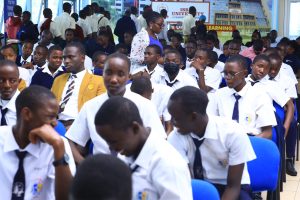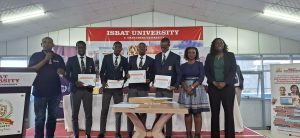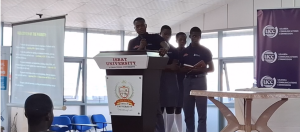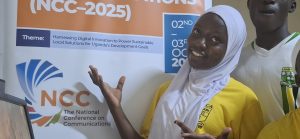Kinyogoga Seed SS Lights the Digital Torch in Nakaseke
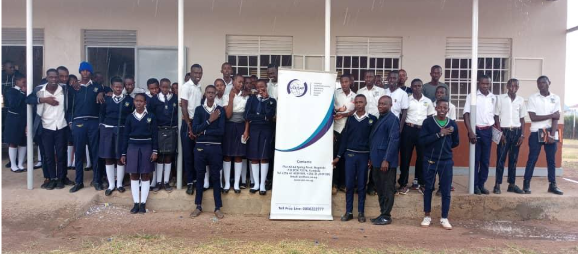
On Tuesday, 10th March 2025, the corridors of Kinyogoga Seed Senior Secondary School, located in Kinyogoga Parish, Kinyogoga Subcounty, Nakaseke District, came alive with excitement as students and teachers gathered for the official launch of their ICT Club. The launch, organized by the Uganda Communications Commission (UCC) in collaboration with KAWA , marked a major milestone in the school’s journey towards digital transformation and innovation.
Situated just 75 km from Kampala via the Kampala–Luweero–Nakaseke highway, Kinyogoga Seed SS serves students from Nakaseke and neighboring towns such as Luweero (35 km away) and Kapeeka (20 km away). Its strategic location makes it a hub for learners from both rural and peri-urban communities seeking to gain digital skills for the 21st century.
A Day of Skills and Discovery
The launch featured four dedicated staff members, alongside eager students, all ready to explore new horizons in technology. Led by Christine Nambi, the KAWA facilitator, and supported by the school’s ICT team, the training covered a wide range of essential topics:
- Introduction to ICT Club and Its Purpose: Empowering students to drive digital literacy and manage ICT resources responsibly.
- ICT Lab Management and Sustainability: Building skills in maintaining clean, functional, and well-equipped computer labs.
- Basic Computer Maintenance and Troubleshooting: Hands-on sessions on fixing common computer problems and performing updates.
- Internet Safety and Cybersecurity: Understanding online threats and how to stay safe in the digital world.
- Digital Skills Beyond the Curriculum: Coding basics, creative digital tools, and problem-solving with technology.
- Networking and Internet Usage: Exploring how networks function and the best practices for secure internet access.
- Innovation and ICT Competitions: Inspiring students to develop creative projects and prepare for local and national ICT contests.
Hands-On Experience and Challenges
With 14 networked computers available, students had practical sessions that brought technology to life. Teachers, all equipped with smart devices, actively participated, ensuring they would continue to support the club’s activities beyond the launch day.
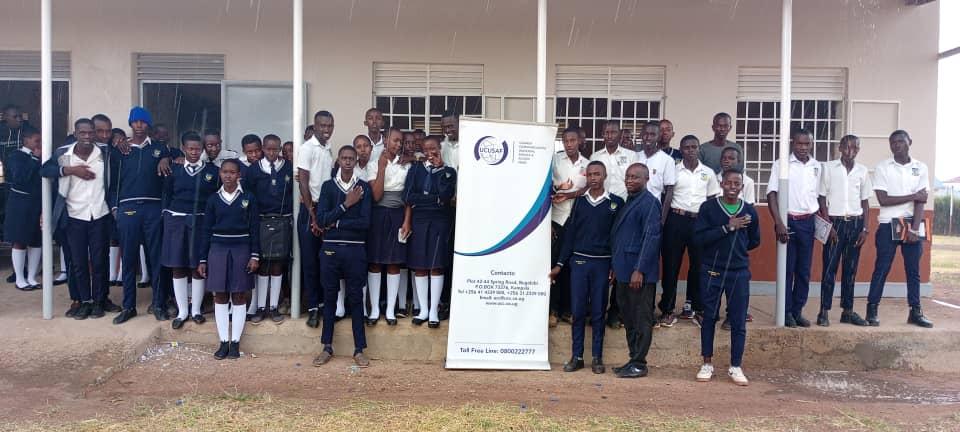
One challenge highlighted during the session was unreliable internet connectivity, which limited some online activities. It was recommended that the school explore stable connectivity solutions to maximize the potential of the ICT Lab.
Why ICT Clubs Matter
UCC and KAWA emphasized that ICT Clubs are more than just extracurricular activities; they are platforms for problem-solving, innovation, and skill development. The program focuses on two main pillars:
- Computer Repair and Maintenance: Students will regularly maintain and repair ICT equipment, building real-world technical skills.
- Problem-Solving Projects: Each student is encouraged to work on at least one innovation or project annually, fostering creativity and critical thinking.
Skills Students Will Master
By participating in the ICT Club, learners will gain practical skills, including:
- Troubleshooting hardware and software issues.
- Installing Windows and Linux operating systems.
- Networking fundamentals and internet configuration.
- Researching and evaluating information online.
- Using open-source tools like Open Office and e-learning platforms like MOOCs.
- Understanding the impact of ICT on society and using social media responsibly.
Looking Ahead
The ICT Club will meet weekly, focusing on digital literacy workshops, coding clinics, and community-driven tech projects. UCC, UCUSAF, and KAWA have pledged ongoing support through mentorship, digital resources, and capacity-building programs to ensure that the club thrives.
“The enthusiasm from both students and teachers today proves that the future of technology in Nakaseke is bright,” said Christine Nambi during her closing remarks. “With proper mentorship and dedication, these students will not only learn but also innovate and lead in the digital space.”




